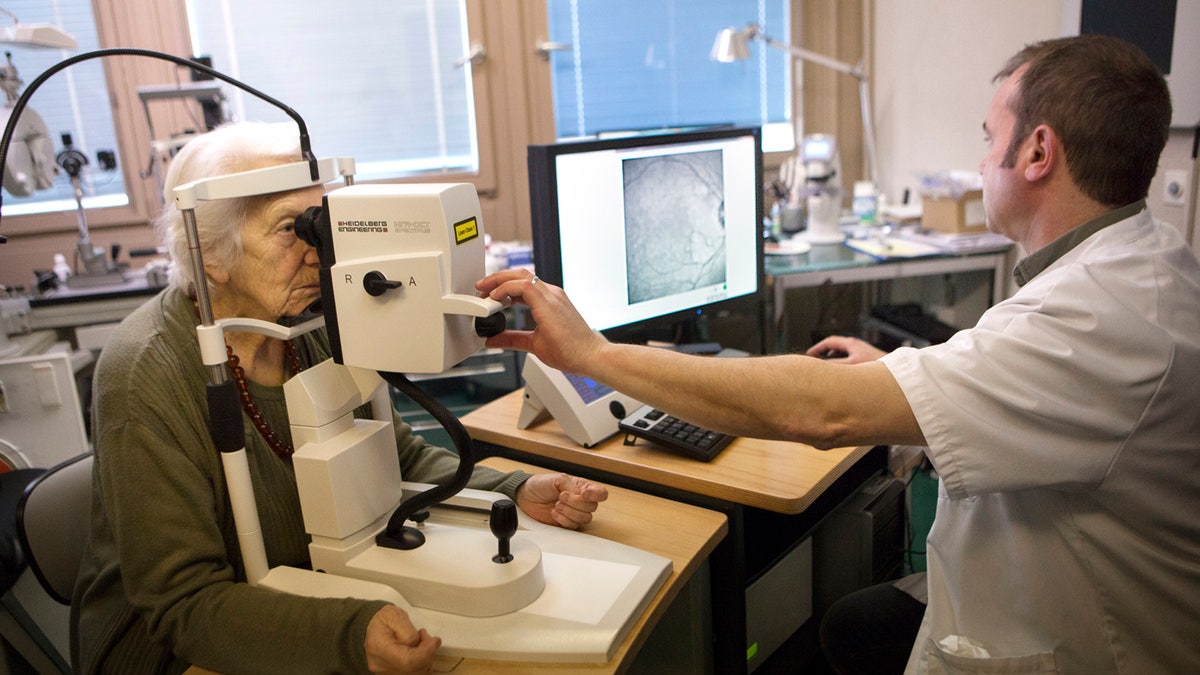
A new machine-learning system could help eye doctors diagnose more patients accurately. (BSIP/UIG via Getty Images)
Scientists say a new machine-learning system is as good as the smartest human experts at detecting eye problems and making referrals for treatments.
The groundbreaking artificial intelligence system, developed by the AI-outfit DeepMind, was able to correctly refer patients with more than 50 different eye diseases.
“The results of this pioneering research with DeepMind are very exciting and demonstrate the potential sight-saving impact AI could have for patients,” Prof Sir Peng Tee Khaw, the director of the NIHR Biomedical Research Centre at Moorfields eye hospital and the UCL Institute of Ophthalmology in the U.K., told the Guardian.
The two-stage AI system takes a more human-like approach to analyzing patients' optical coherence tomography (OCT) scans of their retinas. The tests commonly divide patients into four clinical categories: urgent, semi-urgent, routine and observation only.
According to research published in the journal Nature Medicine, different machine-learning systems, trained on OCT scans, create maps of the scans. Those maps are then analyzed by a second group of machine-learning systems, which were trained on maps from 14,884 OCT scans, which interpret those maps and give a referral decision.
The decisions are combined into one result. Any unique or borderline results can be shown to a doctor for their own interpretation of the referral.
INSTAGRAM HACKED? WARNING AS RUSSIAN CYBERATTACKERS STEAL HUNDREDS OF ACCOUNTS
“The number of eye scans we’re performing is growing at a pace much faster than human experts are able to interpret them,” Dr. Pearse Keane, a consultant ophthalmologist at Moorfields eye hospital, told the Guardian.
“The AI technology we’re developing is designed to prioritise patients who need to be seen and treated urgently by a doctor or eye care professional. If we can diagnose and treat eye conditions early, it gives us the best chance of saving people’s sight,” Keane added.
The AI system will next be put through clinical trials to see if it can be used in a more widespread way. The sytem could also be used to help train doctors.
Robert Dufton, the chief executive at Moorfields Eye Charity, said: “The need for treatment for eye diseases is forecast to grow, in part because people are living longer, far beyond our ability to meet the demand using current practice.
“Artificial intelligence is showing the potential to transform the speed at which diseases can be diagnosed and treatments suggested, making the best use of the limited time of clinicians.”




















